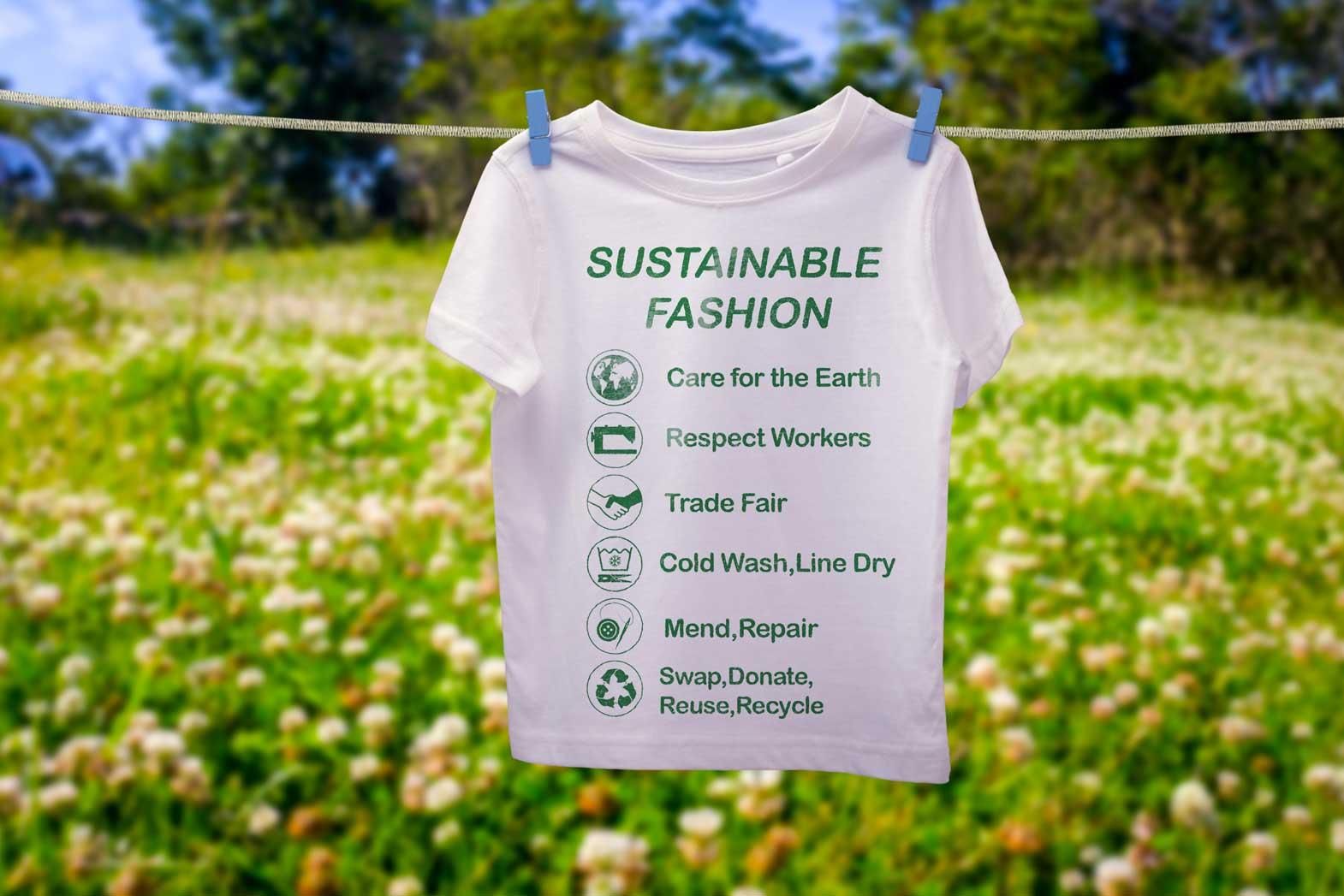When one thinks about fashion, words like glamour, style, trend, etc., immediately come to mind, rather than words like sustainable, eco-friendly, or ethical. However, in the coming ten to fifty years, the most important question the fashion industry needs to ask is how sustainable it is. Ethical and sustainable fashion has been gaining momentum globally in the past decade.
Ethical and sustainable fashion is an approach to sourcing, manufacturing, and designing clothes that maximize benefits to the industry and society at large while minimizing the impact on the environment. Ethical means something that is morally right and acceptable. Therefore, ethical and sustainable fashion doesn't start with manufacturing clothes; it begins in the cotton fields and ends in the consumer's wardrobe. Conventional cotton farming, for example, cannot be considered ethical and sustainable, as it often involves the use of harmful pesticides.
Today, sustainability is not just a concept; it's a way of doing business. Pioneering brands like Stella McCartney and NOIR have embraced ethical and sustainable fashion, and many other companies have followed suit. These companies have recognized that integrating social and environmental concerns into their business practices leads to long-term benefits.
Fashion exhibitions, Ethical Fashion Forums, and blogs all focus on the concept of sustainable fashion. Going green is also about business and profits. Brands that practice ethical and sustainable fashion must stay committed to their principles to win consumers' trust and uphold their ethical values.
Transparency is crucial in sourcing, manufacturing, designing, and other processes so that consumers can know whether brands are delivering on their promises. To make sustainability attractive in the fashion industry, it must also be desirable. Consumers are drawn to good designs, colors, and fabrics, and environmental or ethical concerns come later.
Brands that respond to consumers' demands for both style and sustainability can thrive in this green business. The time has come to change the relationship between consumers and clothing. Sustainability extends beyond the environment to the entire fashion business, from production to retail stores.
When the fashion industry ensures fair wages, eliminates forced or child labor, upholds workers' basic human rights, follows health and safety measures in the workplace, promotes biodiversity, encourages organic cultivation, and manufactures clothes using eco-friendly methods, these steps will make the fashion industry truly ethical and sustainable.
The Ethical Fashion Forum (EFF) is a non-profit organization established to promote sustainable practices, raise awareness among people, provide resources to reduce poverty and environmental damage, and raise standards in the fashion industry. The EFF has more than 6000 members in over 100 countries supporting sustainable fashion. Moreover, it has set up criteria for ethical fashion which needs to be followed.
The EFF has framed policies in collaboration with the top ethical sourcing and certification bodies made by The International Fair Trade Association, The Fairtrade Foundation and others. This helps the EFF to work in an organized manner with the members in the fashion industry and develop ethical and sustainable practices. Ethical companies will manufacture clothes giving importance to the above mentioned sustainable and ethical ideas, which in return will benefit the society and earth.
Additionally, there are many instances of 'greenwashing' in the fashion industry. Greenwashing refers to deceptive use of green marketing and misleading the consumers in believing that company's products and policies are earth friendly. Greenwashing is perilous to the sustainability endeavor as it takes away consumers trust, which is very difficult to restore.
The fashion industry would advice people of what one should wear. However, it remains silent about sustainable fashion. People are aware that green clothing is better than traditional fabrics. Every time consumers spend money on fashionable clothes, indirectly people are telling the fashion industry about what they should be doing. Hence, the consumers should use this right wisely. There are many benefits of ethical and sustainable fashion.
Firstly, it is good for the planet. Fashion industry uses harmful pesticides for growing cotton and toxic chemicals to dye fabrics which in return have huge impact on the environment. Cotton alone requires a lot of chemicals to make one shirt. Opting for organic and sustainable fabrics like organic cotton, bamboo or hemp, one can reduce the amount of carbon and chemicals discarded in the environment which is certainly a good practice.
Secondly, it supports the workers. One should buy clothes labeled under the Fair Trade Act as it is sustainable on many grounds. One can be sure that the clothing purchased has been produced under proper working condition and the worker has earned fair wages. Moreover, it also benefits animals. By making sure that one's closet is not stocked with leather or fur products means stopping cruelty towards animals.
Buying organic and renewable fibers are the best way to support sustainability. In addition, buying durable green clothing that one can wear for many years would be another step to reduce waste coming from throwing away old unnecessary clothing. Invest in clothes that are classic, chic and can be used in future rather than buying a trendy item and discarding it, once the fashion is outdated.
For a consumer buying sustainable clothing is the first step towards sustainability. However, they can further contribute towards sustainability by taking care of small things like washing the clothes in cold water than using hot water and reduce energy consumption, using biodegradable detergent to prevent pollution on the environment, drying clothes in sunlight rather than using dryer which saves time, money and resources.
Sustainability will mean different to different companies in the fashion industry. Nevertheless, leading companies must practice and encourage others to follow sustainability and embed this concept into the main objectives of business. Big brands must be more responsible for sustainable fashion, as they have a global reach and the financial capability to research and develop greener alternatives. Ethical and sustainable fashion will eventually become a norm to be practiced by everyone in the fashion industry.
References:
1. Ifashion.co.za
2. Treehugger.com
3. Businessoffashion.com
4. Ethicalfashionforum.com








Comments